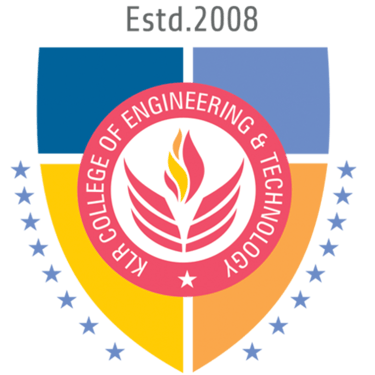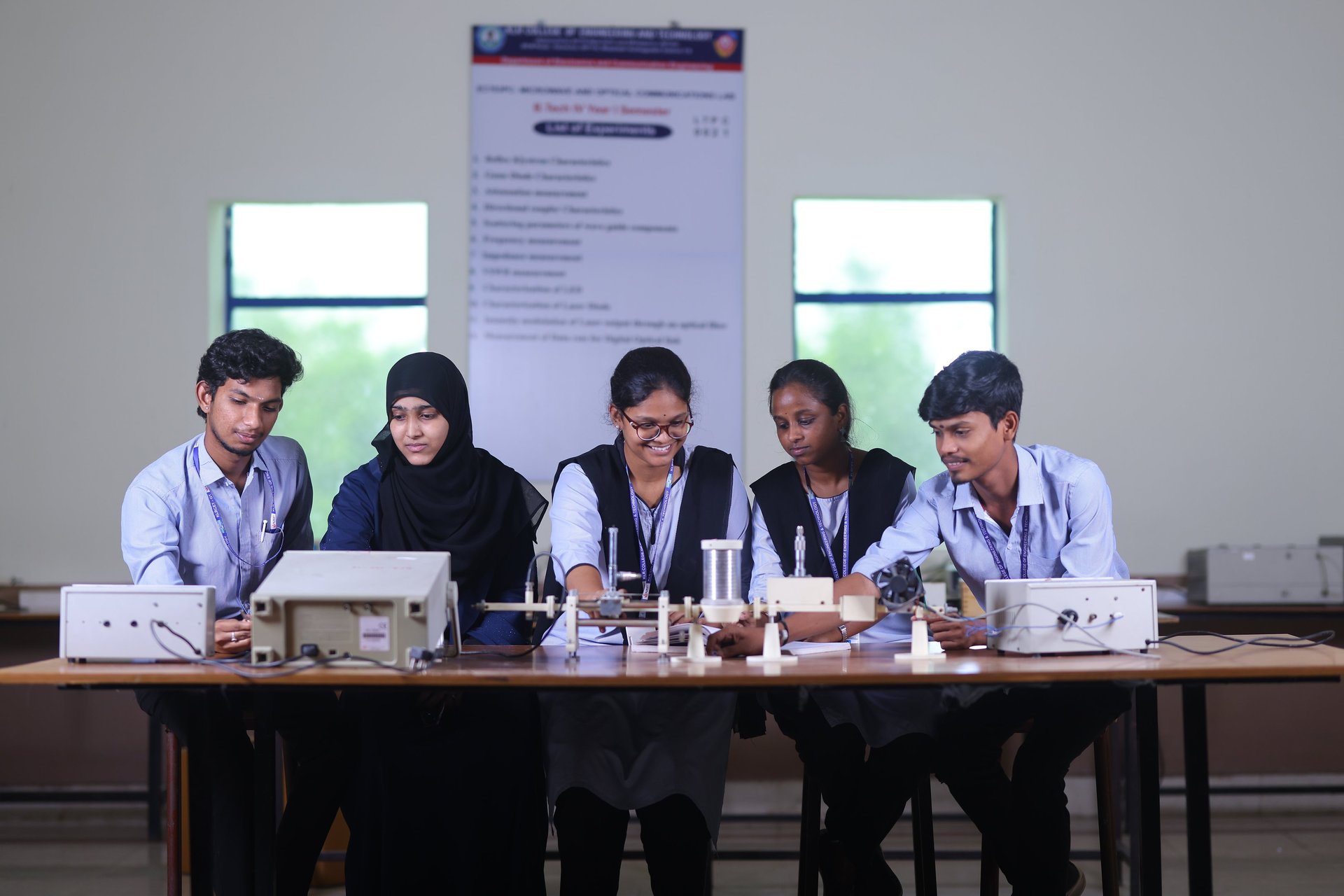
About The Department
The Department of Electronics and Communication Engineering (ECE) was founded in 2008. It presently offers an undergraduate program in Electronics and Communication Engineering and a postgraduate program in Microwave and Radar Engineering. The intake capacity for the undergraduate program is 60 students, while the postgraduate program in Microwave and Radar Engineering accommodates 18 students.
To facilitate high-quality education and research, the department has established advanced laboratories such as Electronic Devices and Circuits, Pulse and Digital Circuits, Analog and Digital Communications, Microprocessors and Controllers, Microwave Engineering, VLSI, and Digital Signal Processing. These labs are equipped with licensed software including MATLAB, Multisim, and XILLINX.
In 2019, a dedicated project lab was set up with the aim of fostering research and development initiatives, as well as training students to apply theoretical concepts in practical scenarios. The Research Forum plays a pivotal role in executing student projects and in-house projects. It encourages students to engage with industry, bridging the gap between academia and real-world applications.
The department has established student chapters like IETE (Institution of Electronics and Telecommunication Engineers) and ISTE (Indian Society for Technical Education) to empower students to organize guest lectures, workshops, and acquire fresh insights, thereby promoting networking opportunities. These student forums host a diverse range of activities on a regular basis.
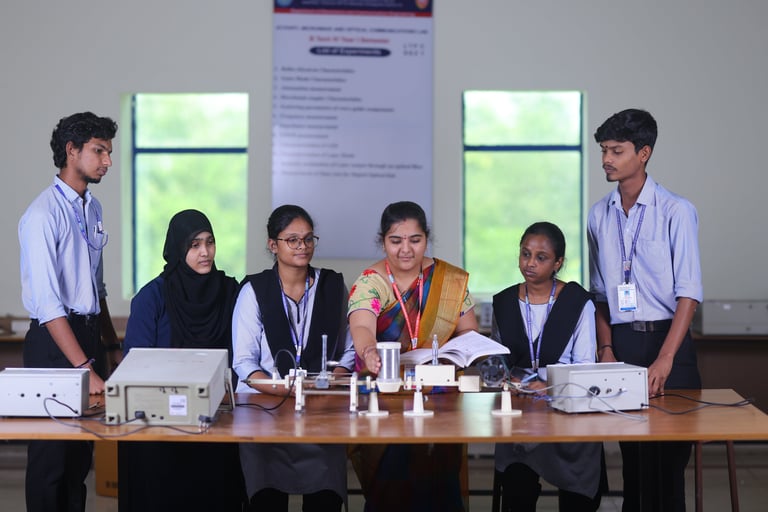

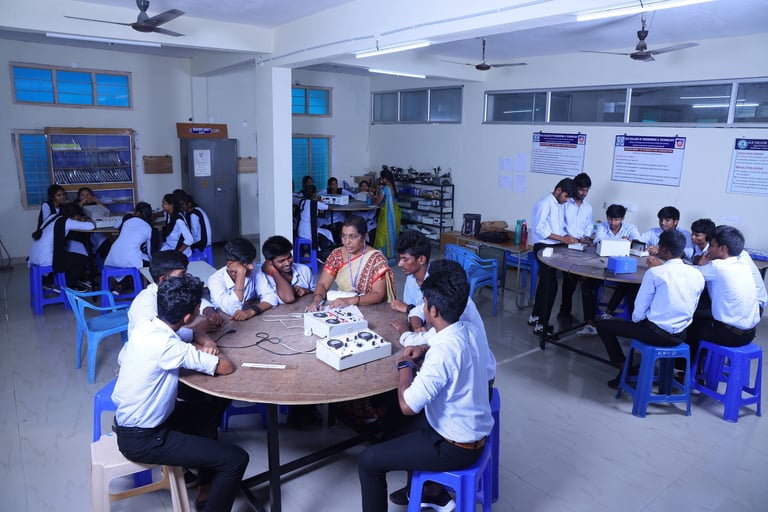

M1: To enhance career and inculcate spirit of research attitude, foster entrepreneurship through emerging technologies and industry-institute interaction
M2: To impart high quality technical education with problem solving capabilities by innovative pedagogy in emerging technologies.
M3: To imbibe ethical values and leadership skills among student community.
To evolve as a centre of repute in the field of Electronics and Communication Engineering, and related domains. To foster innovation through cutting-edge research and advanced technological solutions. To develop globally competent professionals who can address contemporary challenges in the field.
Vision
Mission
Programs Offered
Program Educational Outcomes (PEO)
Program Specific Outcomes (PSO)
Dr. Veera Prabhakar Rao Jagatha serves as the Head of the Electronics and Communication Engineering (ECE) Department at KLR College of Engineering & Technology, bringing over 2 years of dedicated academic leadership to the institution. With an M.Tech in VLSI Design (JNTU Hyderabad, 2013, 80.19%) and B.Tech in ECE (JNTU Hyderabad, 2006, 70.11%), he specializes in VLSI systems and embedded technologies. As HOD, Dr. Jagatha spearheads curriculum development, lab modernization, and industry collaborations while mentoring students for competitive exams and research projects. His expertise extends to accreditation processes (NBA/NAAC) and implementing outcome-based education. A registered faculty member (AICTE ID: 1-435547297, JNTUH ID: 72150402-122153), he actively promotes hands-on learning and interdisciplinary research in semiconductor technologies. Under his guidance, the ECE department continues to advance its academic excellence and industry partnerships.
Head of the Department
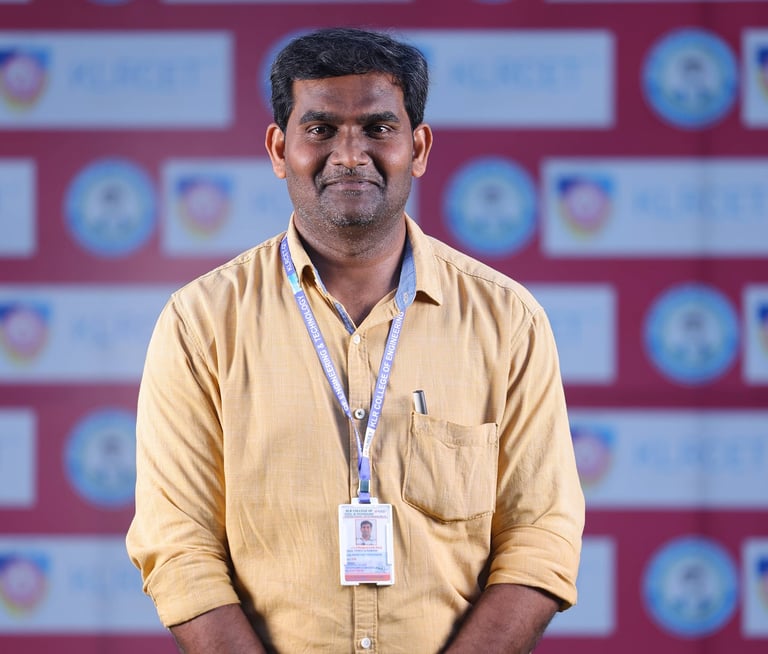

J.V.Prabhakar Rao
B.Tech,M.Tech
ECE FACULTY
Faculty Achievements
2019-2023
Technical magazines of the Electronics and Communication Engineering (ECE) department are published twice a year to showcase the department’s achievements and activities. These include student placements, faculty accomplishments, workshops, events, and academic innovations.
Serving as a bridge between students, faculty, alumni, and industry, the magazine highlights the department’s progress and fosters a culture of excellence, innovation, and collaboration within the ECE community.
Technical magazines
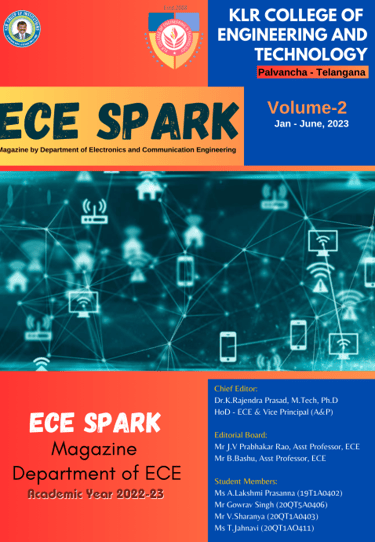

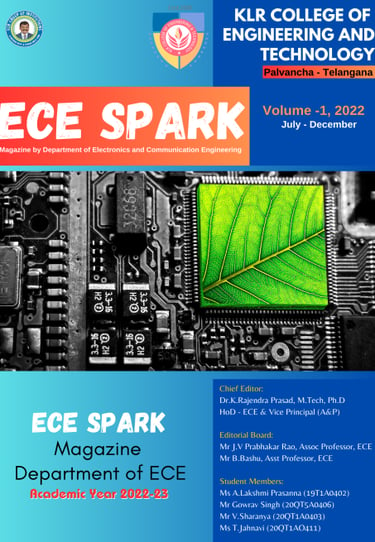

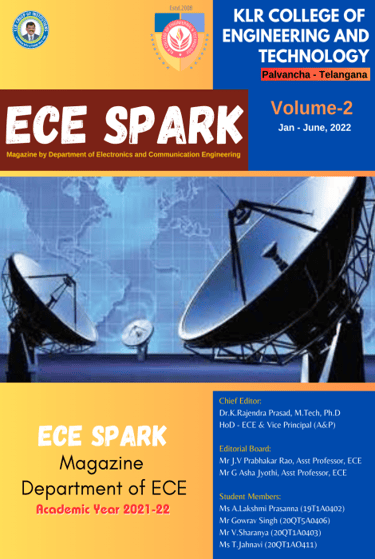

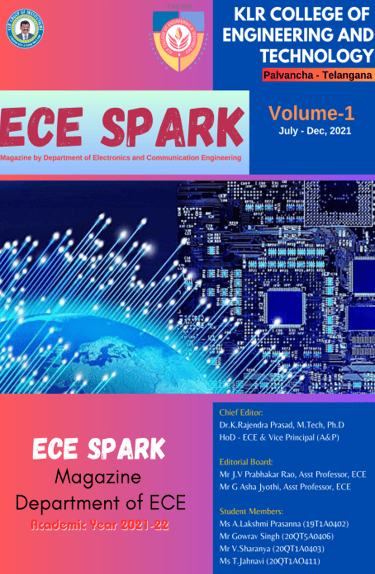

Editorial Board Members
(2022-23)
ECE PLACEMENTS
